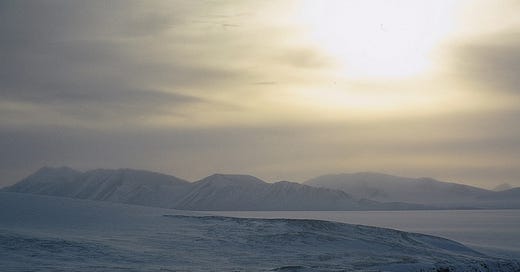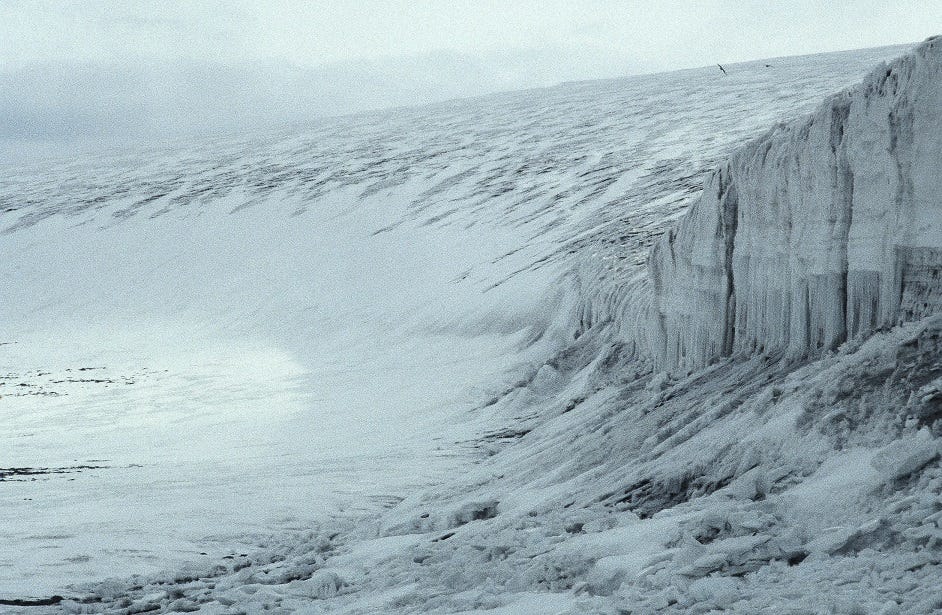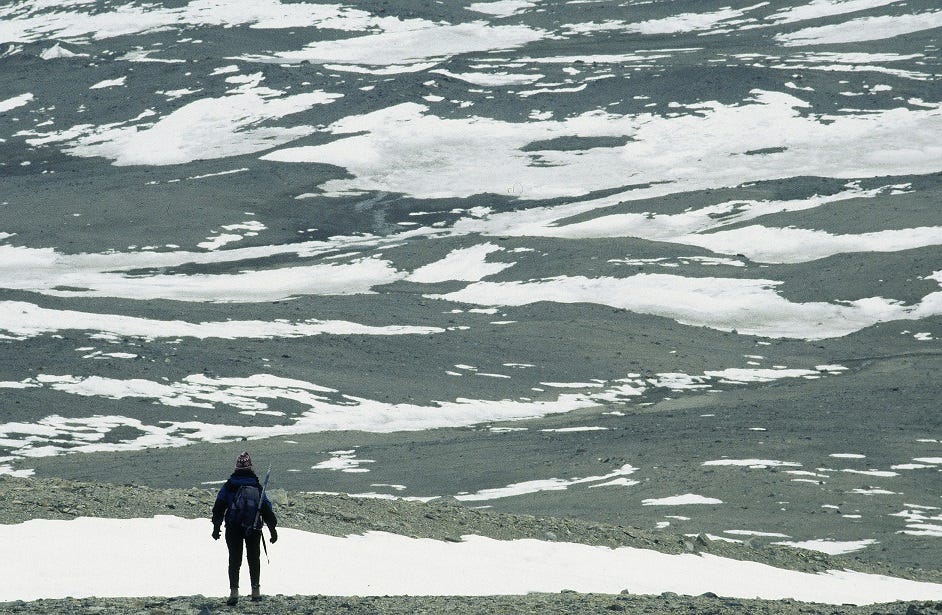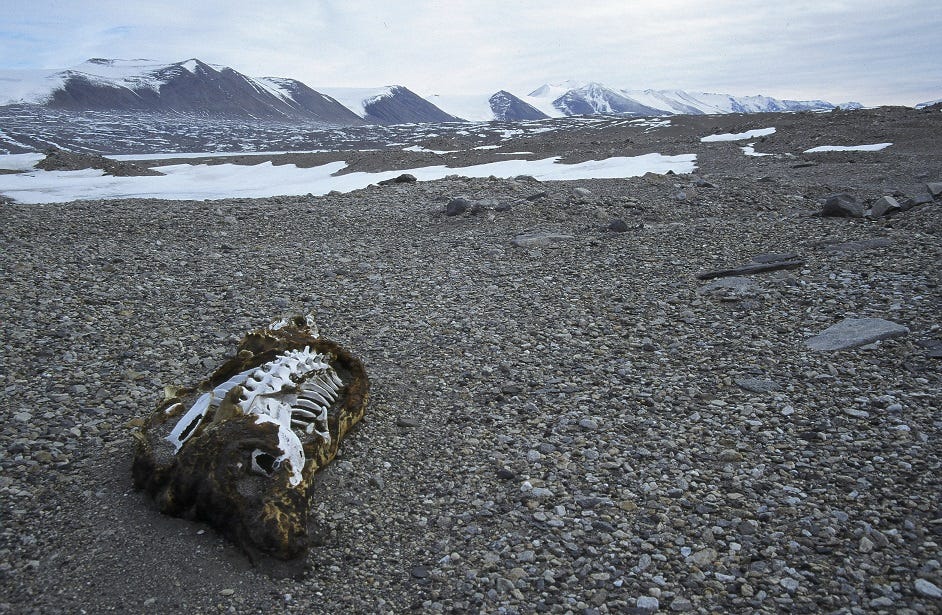Hello everyone:
It’s another holiday week, so for this essay I’ll lean a little more than usual on other writers. 2022 awaits us this weekend, so we should all probably rest up… I think we can assume that it will be another doozy of a year.
Truth be told, I’ve always thought New Year’s was weird. Time seems linear, sure, but not that linear. Celebrating the turning of a page in a calendar never made sense to me, even as a kid. I remember quietly slipping out of a New Year’s party in college around 11:45 p.m. because the more enthusiastic my friends became, the more out-of-step I felt. It’s not that I was smarter (I wasn’t), or that I grew up celebrating the solstice (I didn’t); I just couldn’t make sense of the ritual. Any other party on any other night of the year was fine with me, because no one was pretending that the drinking game defined reality.
My disinterest in the holiday paid off beautifully at the end of 1999. It was the so-called Y2K transition, when two odd numeric hypotheses – computers would crash because they couldn’t tell time, and the new millennium would somehow be different than the old one – had people very excited to get drunk together. I was working in McMurdo Station, Antarctica, when my boss asked if I would be willing to leave the crowded base to work over the holiday weekend in a remote 3-person helicopter-refueling camp at the foot of the Transantarctic Mountains. I’d be replacing someone who desperately wanted to be at the party. My boss didn’t know I’d have given up my salary for the opportunity, and I didn’t tell him. Instead I asked, given the sacrifice (he thought) I was making, if I could bring a friend. She and I met the new year in a timeless landscape under a sun that never set, walking for twelve hours across a moraine at the foot of glacial ice that extended up into the mountains and then across the entire continent. We walked amid wind-carved stones and centuries-old seal carcasses, and along a sea restless with the jostling of ice. Like most Antarctic journeys, it was both dream-like and unnerving, a combination that suits me well.
Maybe I’ve always had a hard time pretending. Not that I don’t have my share of the delusions found in any adult battered by life and an unruly consciousness, but as a kid I didn’t narrate the actions of figures in the sandbox, and as I got older I couldn’t imagine there was a hard line between 12/31 and 1/1.
And it’s not that I don’t have an imagination. I can make sentences sing, metaphors fly, and my lovely wife laugh. But it’s the kind of imagination that embraces poetry before prose.
There are books to be written about the relationship between human imagination and the Anthropocene. Subjects would include how imagination (via technological innovation and a no-limits fantasy) has driven our species into a resource-driven frenzy, how a more rational and humane imagination has so far failed to quell that frenzy, and how our imagination has been limited by a collective fear and anxiety about making the necessary changes. Remember Barry Lopez’s sad and lovely bit of empathic wisdom from last week:
I know we’re living in an awful time, and we’re reminded of it every day… I can feel when I travel the anguish that people carry where in another time they might have been carrying hope. And I want as a writer to do something to ameliorate that anxiety because the more anxious we are the more paralyzed we become. And in our paralysis is our ending.
Which brings me to this week’s topic: agency. Agency – the urge and ability to act on behalf of your own interests – is the antidote to paralysis. The remarkable writer Helen Macdonald (author most famously of H is for Hawk) has a short essay titled “Symptomatic” in her excellent collection Vesper Flights. The essay is about migraines, but she shifts cleverly into an analogy about our inability to respond appropriately to the scale of the climate and biodiversity crises. Even after years of suffering migraines, sufferers often don’t recognize the onset of symptoms, and that foggy inability to see what’s coming is itself a migraine symptom. Likewise, she says,
it’s just as hard for us to comprehend that things we have been taught are unrelated to each other, that seem only incidentally connected to the workings of the world – things like agricultural production, food distribution, international trade agreements, global corporate culture, among a thousand others – it’s hard for us to comprehend that such things might be causal symptoms of the climate emergency. We’ve been conditioned by our times not to process some types of problems and solutions because they do not fit with how we’ve been taught to think about society.
Macdonald’s migraine mantra for years, she says, was “that’s just how it is.” But then she found a useful medication. She had agency over her condition instead of fatalism in the midst of it. And that made all the difference. It didn’t eliminate suffering, but provided a shortcut through it and a sense of control over her fate.
Apocalyptic thinking is a powerful antagonist to action. It makes us give up agency, feel that all we can do is suffer and wait for the end. That is not what we must be thinking now. For an apocalypse is not always a cataclysmic ending, and not always a disaster. In its earlier senses the word meant a revelation, a vision, an insight, an unveiling of things previously unknown, and I pray that the revelation our current apocalypse can bring is the knowledge that we have the power to intervene. Just as the structures of the migraine-stricken brain can be altered, even if we don’t believe it to be true until it happens, so might the structures of a world locked into what feels like an inevitable reliance on fossil fuels and endless economic growth. There are actions we can take that seem impossible and pointless and yet they are entirely, and precisely, and absolutely required. We can exert pressure, we can speak up, we can march and cry and mourn and sing and hope and fight for the world, standing with others, even if we don’t believe it, even if change seems an impossibility. For even if we don’t believe in miracles, they are there, and they are waiting for us to find them.
Macdonald provides here not just a rational hopefulness for us to build on, but an echo of this week’s main reading, another borrowing from Paul Hawken and his brilliant team’s essential book, Regeneration. (I’ll say it again: if you want the closest thing to a game plan for dealing with both the climate and biodiversity crises, invest some time in Regeneration.) The second of two introductions in the book is titled, simply, “Agency.” The agency in question is mine, yours, ours. As Macdonald made clear, we are at least partial agents of our fate, are we not?
Hawken and Macdonald, in turn, echo Barry Lopez, in that they aim to reduce our anxiety and break whatever paralysis we’re feeling as we face up to the Anthropocene.
“Agency” begins by addressing the difficult reality before us, and then moves forward toward a deeper understanding of our place within that reality. That place, our place, is one which includes agency. In the darkness we face are patterns of light created by those who are already using their agency to understand and act upon the parts of the crises they can get our hands on. “The agent who can head off the climate crisis,” Hawken writes, “is reading this sentence.”
Without further ado, then, here’s the bulk of Paul Hawken’s “Agency,” from Regeneration: Ending the Climate Crisis in One Generation:
…Accurate as they may be, climate predictions can obscure another set of tipping points, the numerous small changes and crucially important outcomes that lead to people’s involvement and participation, rather than passivity and fear. These are actions that slow, forestall, and transform the climate crisis. Ending the climate crisis means creating a society that is going in the right direction at the right speed by 2030, a rate of change that will lead to zero net emissions before 2050. That means halving emissions by 2030 and then halving again by 2040. Tens of thousands of organizations, teachers, companies, architects, farmers, Indigenous cultures, and native leaders know what to do and are active in implementation. The current growth of the climate movement is magnificent, but it remains a small fraction of the world. Hundreds of millions of people need to realize that they have agency, that they can take action, and that collectively it is possible to prevent runaway global warming.
The agent who can head off the climate crisis is reading this sentence. Logically, this seems like nonsense – surely individuals are powerless to counter the global drivers and momentum of global warming. That’s a fair conclusion if we assume that yesterday’s institutions should or will do it for us. There is a debate as to whether individual behavior or government policy is the key to solving the climate crisis. There shouldn’t be. We need the involvement of every sector of society, top to bottom, and everything in between.
It is engaging and fascinating to calculate one’s own carbon footprint, but Regeneration takes a different and wider tack, because there is no such thing as a single individual. Thinking you are an individual is self-identity. Being an individual is an ongoing, functional, and intimate connection to the human and living world. When we look at our networks, each of us is multitudes. We have different skills and potential, including sharing, electing, demonstrating, teaching, conserving, and diverse means of helping leaders, cities, companies, neighbors, co-workers and governments become aware and able to act.
Worried you are not an expert? Almost no one is. But we understand enough. We know how greenhouse gases function and warm the planet; we are seeing greater climate volatility and extreme weather; and we know the primary sources of carbon emissions. We want a stable climate, food security, pure water, clean air, and an enduring future that we can become ancestors to. Cultures, families, communities, lands, professions, and skills vary with every person. The situations we find ourselves in differ. Who better to know what to do at this time, in this place, with your knowledge, than you?
Nonetheless, solving the climate crisis is an unnatural act, one that human beings are ill-equipped to do. Our minds just don’t work that way. The idea of a future existential threat is abstract and conceptual. War metaphors about fighting, battling, and combating climate change don’t connect either. Who wakes up in the morning excited about mitigating or getting to “net zero” in thirty years? Most people ignore climate headlines, and for good reason. The overwhelming majority focus on current dilemmas, not distant ones, obstacles that impact one’s life now, not in 2050. On the other hand, humans are notably brilliant at joining together to solve problems. Give us immediate threats like an impending cyclone, flood, or hurricane, and we are all over it. If we are going to engage the bulk of humanity to end the climate crisis, the way to do it is counterintuitive: to reverse global warming, we need to address current human needs, not an imagined dystopian future.
If we want to get the attention of humanity, humanity needs to feel it is getting attention. If we are going to save the world from the threat of global warming, we need to create a world worth saving. If we are not serving our children, the poor, and the excluded, we are not addressing the climate crisis. If fundamental human rights and material needs are not met, efforts to stem the crisis will fail. If there are not timely and cumulative benefits for an individual or family, they will focus elsewhere. The needs of people and living systems are often presented as conflicting priorities – biodiversity versus poverty, or forests versus hunger – when in fact the destinies of human society and the natural world are inseparably intertwined, if not identical. Social justice is not a sideshow to the emergency. Injustice is the cause. Giving every young child an education; providing renewable energy to all; erasing food waste and hunger, ensuring gender equity, economic justice, and shared opportunity; recognizing our responsibility and making amends to myriad communities of the world for past injustices – these and more are at the very heart of what can turn the tide for all of humanity, rich and poor, and everyone between. Reversing the climate crisis is an outcome. Regenerating human health, security and well-being, the living world, and justice is the purpose.
This requires a worldwide, collective, committed effort. Collectives do not emerge from the tops of institutions. They begin with one person and then another, the invisible social space where commitment and action join and come together to become a dyad, a group, a team, a movement. To put it simply: no one is coming to help. There is not a brain trust that is going to work out the problems while we ponder and wait. The most complex, radical climate technologies on earth are the human heart, head, and mind, not a solar panel. Just as we stand at the abyss of a climate emergency, we stand at another remarkable threshold. The rate of understanding and awakening about climate change is increasing exponentially, even skyrocketing. Climate change is becoming experiential rather than conceptual. As weather becomes ever more disruptive, and awareness and concern increase, the movement to reverse the climate crisis will likely become the largest movement in the history of humankind. It took decades to create this moment.
It is natural to worry that it matters little if you are taking action if others are not. From the planet’s point of view, there is no difference between a climate denier and someone who understands the problem but does nothing. The number one cause of human change is when people around us change. Research by Stanford neuroscientist Andrew Huberman upends the idea that beliefs determine what we do or what we can do. It is the opposite. Beliefs do not change our actions. Actions change our beliefs. Do you believe there is nothing you can do to make a difference? Logical. Do you fear the future? Understandable. Do you feel stressed about climate change? Sensible. However, stress is your brain telling you to act. Stress is a signal; it is urging you to do something. Not only do actions change your beliefs, your actions change other people’s beliefs.
When honeybee scouts find a bounty of blooms and nectar, they return to the hive, where they do a symbolic waggle dance at the entrance of the hive. The dance signals the precise direction and distance to the flowering plants or trees. The more vigorous the waggle, the richer the sources of nectar. Once worker bees have seen the dance, they have the necessary information and fly straight to the source. It is time for humanity to create waggle dances unique to their knowledge, place, and determination. Another way to look at this time in history is this: we are being homeschooled by the planet, our teacher. This book is an attempt to reflect those teachings.
I hope that this writing, this Field Guide, is a worthy expression of my own agency in these times. I’ll be back next week with another essay articulating this new world we’re making, this new page in the calendar of Earth history. Thanks for sticking with me.
In the meantime, if you’re still hungry for more curated Anthropocene news – and I highly recommend these articles – here you go:
Movie nights: From the New York Times, a selection of recent nature/climate documentaries. They promise at least a modicum of optimism.
Rewriting history with science: An important Yale e360 article on how ever-more-accurate readings of the climate record are allowing historians and other researchers to link climatic events with past societal disruptions. For example, a recent study of the overlap between the climate record and 2000 years of Chinese history “found that 62 of 68 dynastic collapses occurred soon after Northern Hemisphere volcanic eruptions, an outcome that had only a one-in-2,000 chance of happening if the eruptions and collapses were unrelated.” Climate data is revolutionizing our understanding of history, according to a new book on the topic: “The possibility of rewriting almost the entirety of human history lies before us. History will never again be based on written texts alone.”
Sink and swim: A highly-recommended, top-notch New York Times explainer article, with great graphics, on the role of the Southern Ocean (the waters around Antarctica) in global climate and in the future of sea level rise.
Mammoth mistake? Recent science suggests that schemes to rewild the Arctic with Pleistocene wildlife (mammoths, bison, and other large mammals) will not protect the region from warming. Until now it’s been hypothesized that humans killed off the large, slow wildlife and that in turn changed the region, but data indicates that a warming climate changed the vegetation which then reduced the population of these large mammals. Humans may have contributed to the die-off but seem not to have been the main cause.
Pop science: From the Overpopulation Project, a report on the growing interest among climate ethicists in addressing a simple truth: “[S]tudies have repeatedly shown that limiting population growth is among the cheapest, most effective means to limit and help societies adapt to climate change.” Reducing population growth in both rich and poor nations will benefit all life on Earth, including us. This means education for girls, full social and financial equity for women, and a global effort to provide affordable contraception and family planning services.










Hi Jason; trying to catch up on your essays since the New Year by bing-reading! Not the best way to absorb your potent narratives. But at least I'm motivated to read them.
I'm one of the people who need to change. I do care, but do virtually nothing. My past experience in trying to change minds has been de-motivating. I give up on people too easily. Won't suffer fools. Well, if I let that stop me, I'm the fool, I guess.
Working on it.
Thanks, Jason, for being such an eloquent agent of change. This is my favorite sentence in your piece - “From the planet’s point of view, there is no difference between a climate denier and someone who understands the problem but does nothing.” Bingo. It’s exactly how I feel when I futility try to enroll more local, registered Democrats here to engage with party efforts to ensure the installment of our values, principles, and outcomes. They believe but do nothing. Worse they corner me in the grocery store to regale me with praise for ‘sticking my neck out’ in such a conservative community, and share how they wish they could do more but are too busy. It is what it is? It is what it shouldn’t be. We bought a hybrid car, and don’t travel as much. We try desperately not to buy/use plastics - unfortunately still a very challenging thing to do as a modern consumer. We recycle our trash, only to learn our dump doesn’t have means to recycle most plastics. As love cultivates in our own respective homes and generates outward, so do these minuscule efforts to thwart global warming, hopefully. I want to think so. It’s giving me a sense of agency. In the time of COVID nothing else much does.